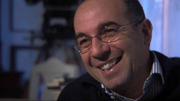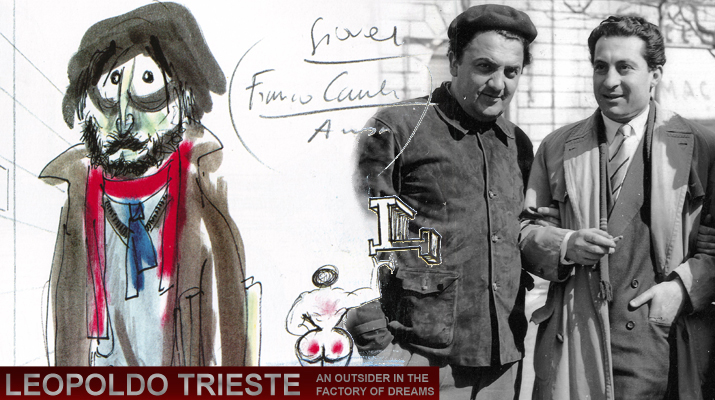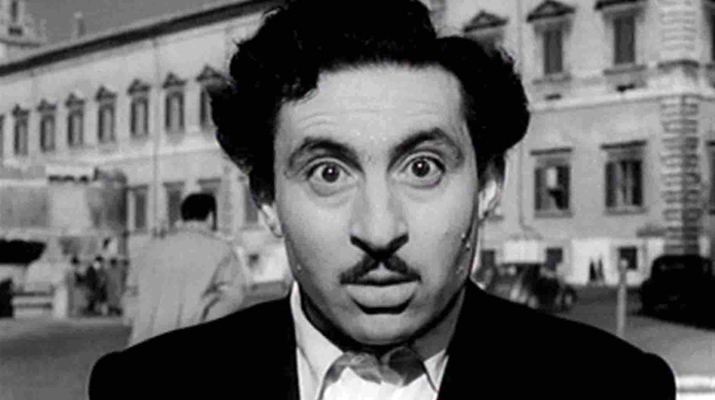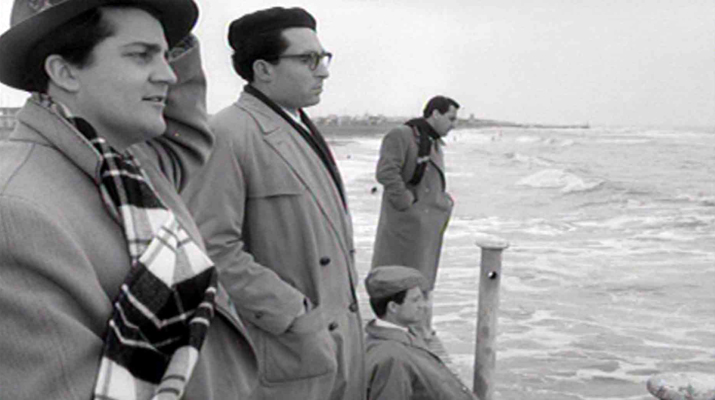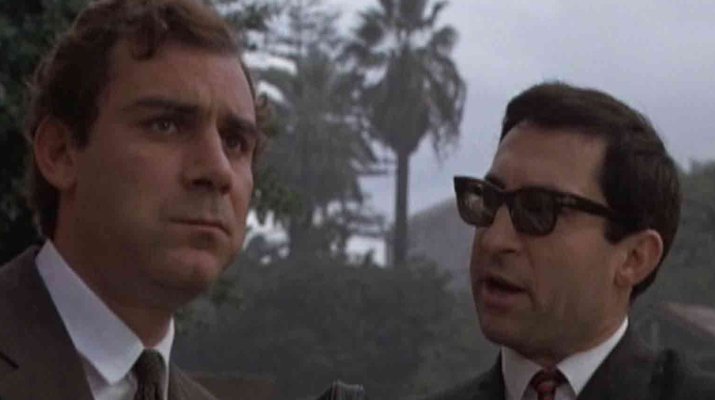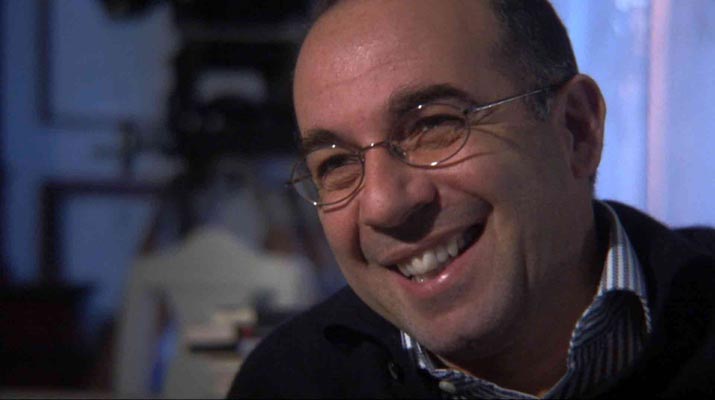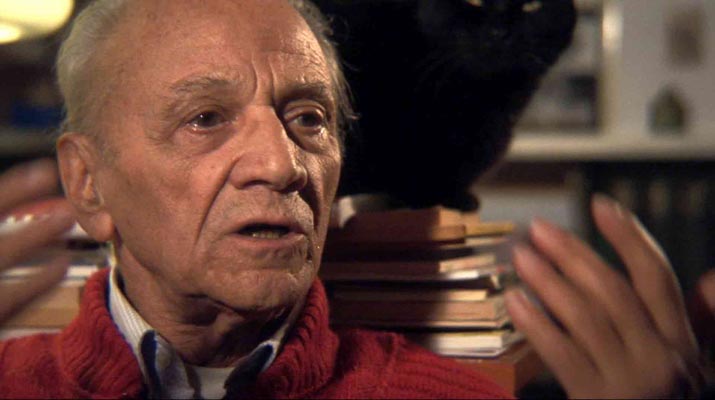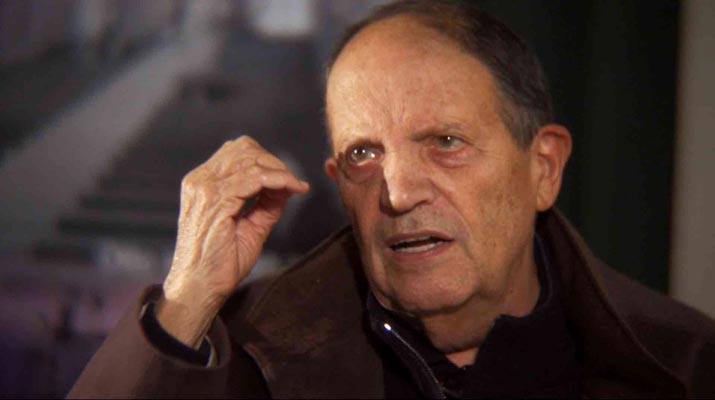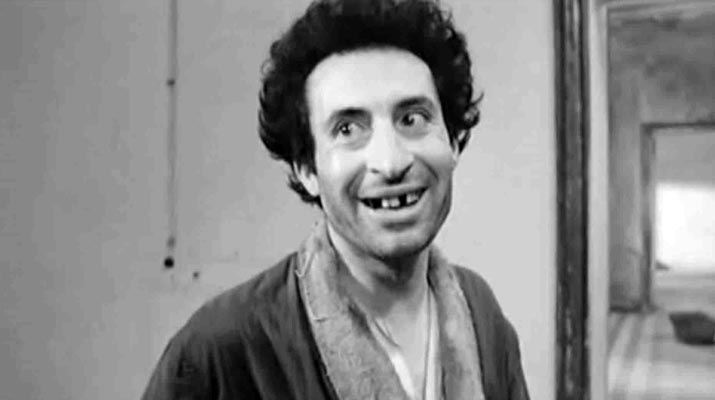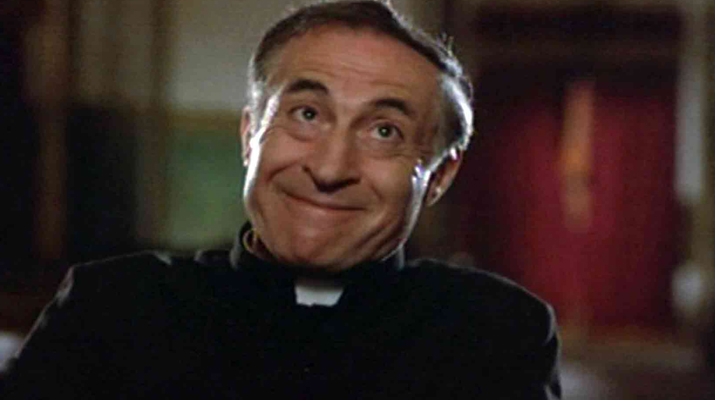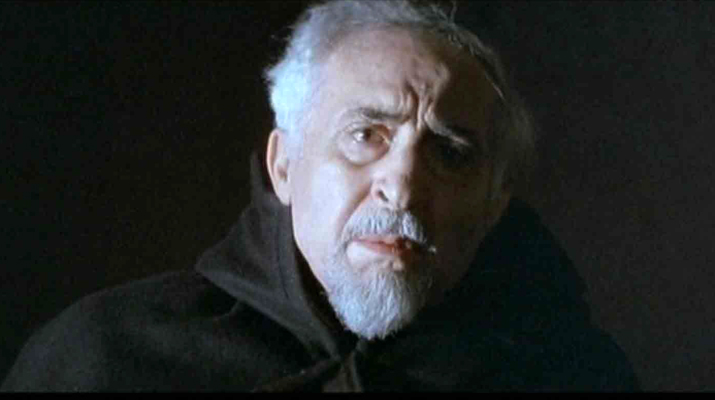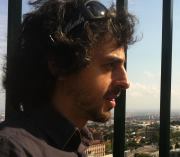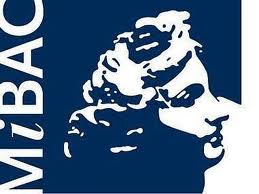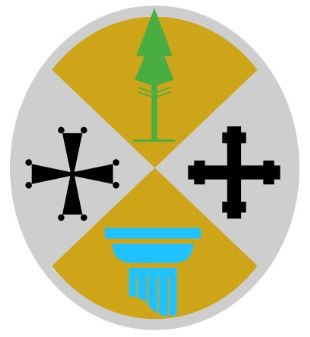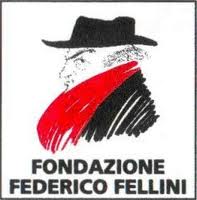
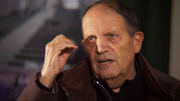

Leopoldo was Federico Fellini's most faithful friend, and keeper of
the maestro's inner dreams. -
Tullio Kezich, film critic

Watching his films is like attending acting classes for a year...
Or even more.
Giuseppe Tornatore, film director
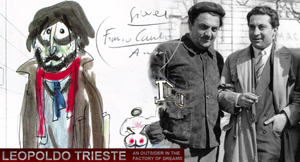 Leopoldo
Trieste,
Leopoldo
Trieste,
an outsider in the factory of dreams
With: Tullio Kezich, Giuseppe Tornatore, Vincenzo Mollica, Moraldo Rossi, Vittorio Boarini, Mimmo Calopresti.
Running time: 44 min. Production: Karousel films, RAI Cinema, with the contribution of the Italian Film Board of the Ministry of Culture, Consiglio Regionale della Calabria, in collaboration with Fondazione Federico Fellini.
Director: Giuseppe Petitto. Author: Sergio Dragone. Camera: Giuseppe Petitto. Line producer: Francesco Scura Editing: Giuseppe Petitto, Antonella Conte. Distribution: Karousel films.
Airing on RAI 1 (Italy) 3 May 2012
Airing on RAI 5 (Italy) 27 Sept 2011
|
|
|
Realizzato con il contributo del Ministero per i Beni e le Attività Culturali. Cortometraggio di interesse culturale nazionale. |
|
|
|
|
|
Realizzato con il contributo del Consiglio Regionale della Calabria. |
|
|
|
|
|
|
||
LEOPOLDO TRIESTE, an outsider in the factory of dreams a film by Giuseppe Petitto, written by Sergio Dragone
A portrait of Italian actor Leopoldo Trieste, who's played in over a hundred-seventy movies, among others, by Federico Fellini, Pietro Germi, Elio Petri, Francis Ford Coppola, Giuseppe Tornatore.
The first post-liberation year in Rome, 1945, began with Luchino Visconti staging Ernest Hemingway's only play, The Fifth Column, and ended with the premiere of Roberto Rossellini's Rome: Open City. During the off-season summer period, one Rome theatre, the Quirino, risked putting on a new Italian play, Trieste's La Frontiera (The Frontier). It didn't draw big crowds, but interest was aroused in the young dramatist. Visconti wanted to read his next play, Cronaca (Hot News), but another director, Maner Lualdi, made the first bid and staged it in Milan in 1946.
Important critics praised the play, but it didn't have the impact it deserved. Read today, Trieste's play seems incredibly modern in its treatment of themes that would still seem daring for the Italian stage. At the time, Trieste didn't feel encouraged to go on writing, even though another of his plays was to be done at the Piccolo Teatro in Milan. He also felt discouraged from directing after two box-office flops. One was Città Di Notte (City By Night, 1956), a rather lacklustre look at Rome's "dolce vita" three years before Fellini's film. His second film was a conventional melodrama called Il Peccato Degli Anni Verdi (The Sin Of The Green Years).
Trieste had tasted success as an actor, thanks to Fellini, who was a close friend. Knowing of Leopoldo's writing ambitions, the director would tease him, saying: "Sono il tuo traviatore" (I'm the one who led you astray). When casting The White Sheik, Fellini's producer wanted a popular comedian for the role of the meek provincial husband on his honeymoon in Rome whose bride chases after the photo romance star. But Federico insisted on Leopoldo, whom he'd seen dressed in a gaucho costume in a religious melodrama. He said it gave him his "biggest laughing fit since first seeing Oliver Hardy".
Leopoldo scored a hit and was cast in Fellini's second film, I Vitelloni (1953), as the young dramatist who is flattered when the famous actor playing in the local theatre wants to read his play, only to discover that the old queen is interested in him for other reasons. He did not stop working for the next four decades.
He played mostly secondary character roles, but this often won him best supporting actor awards: in 1961 for the bizarre painter used as bait for jealousy by Mastroianni's Sicilian baron in Germi's Divorzio All'Italiana (Divorce Italian Style); in 1981 for the psychiatrist in search of goldfish in Marco Bellocchio's film version of Pirandello's Henry IV; and in 1988 for the prudish priest who is over-zealous with the scissors in Tornatore's Cinema Paradiso. He was particularly proud that, in 1974, he had played opposite Robert De Niro in one of the flashback sequences showing Vito Corleone's early life as an immigrant in New York in Coppola's Godfather Part II.
In the years after his 80th birthday in 1997, Italians finally began to give him the recognition he had long deserved, and handsome books were published about his work as an actor and dramatist, one entitled Chasing After Mermaids. In life he was as meek and modest as many of the characters he played, but he did not disdain his belated attention, especially when he was honoured in his native Calabria or at a ceremony in Rome by the minister of culture. He never married, but had a reputation as a great philanderer.
· Leopoldo Trieste, actor, writer and director, born May 3 1917; died January 25 2003
